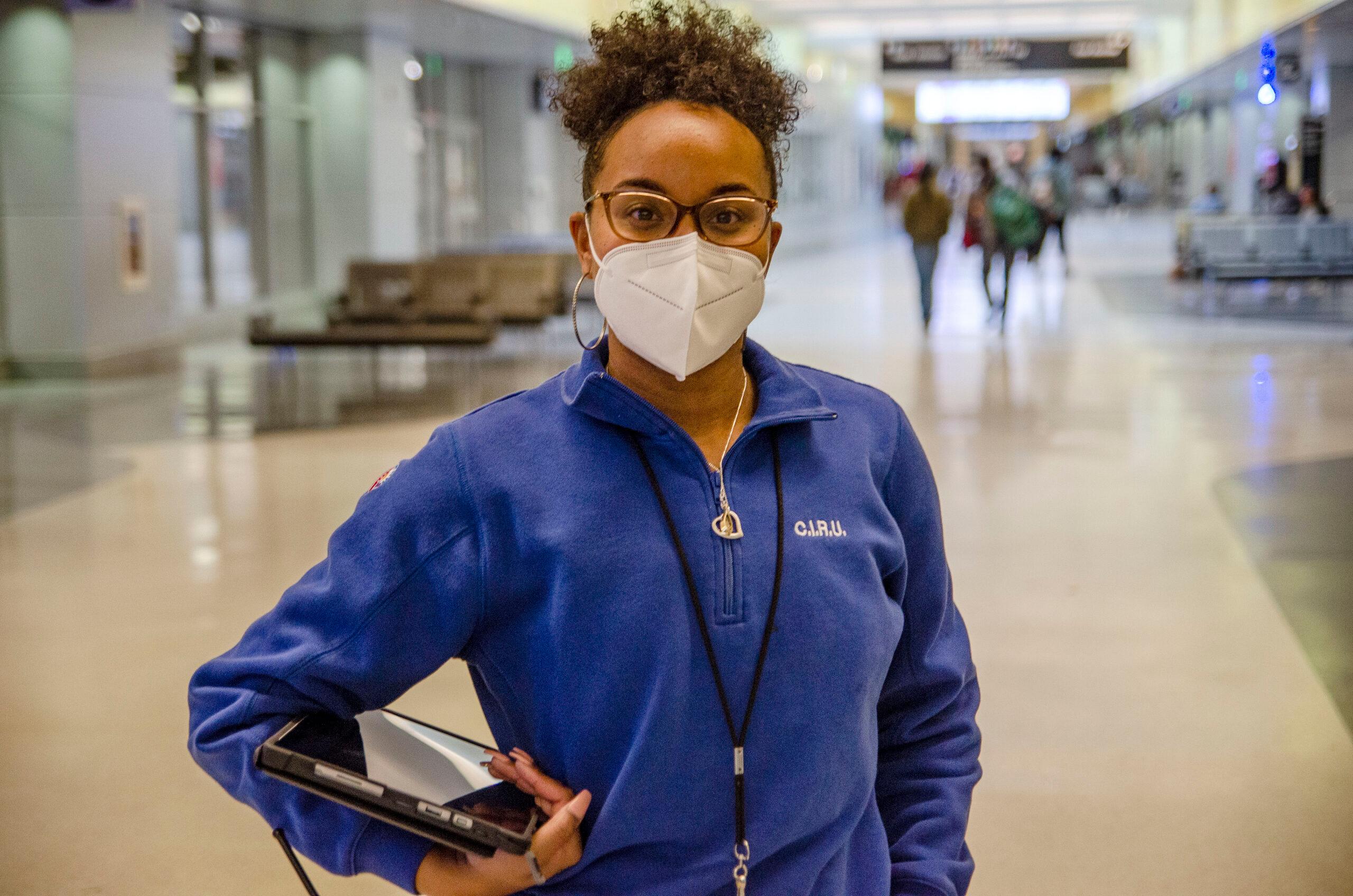
It was a quiet afternoon at Union Station, a calm few hours that Danielle Jones needed.
“I'm tired,” said Jones, who was on a 12-hour shift as a mental health clinician. “But I can't let that show because I'm helping people. If I get a suicide call, I have to be there for that person.”
Since May, Jones has been the sole clinician dedicated to the Regional Transportation District’s network of stations and vehicles — primarily in Denver. Now, RTD has contracted with the Mental Health Center of Denver to add three more.
"It's amazing,” she said with a tired laugh. “Because it's just been a lot, trying to navigate all of RTD. But now, thankfully, I have partners and backup.”
That help is coming at a time where the need is high. Jones said most people she works with are homeless. And while there are far fewer commuters at Union Station because of the coronavirus pandemic, homeless service providers say it’s become a de facto day shelter for people trying to stay warm. RTD officials say there’s been an increase in health-related service calls to the station too.
The addition of the clinicians and an incoming homeless outreach coordinator marks a gradual shift in how RTD handles safety and security. It has historically relied solely on a small police force of its own and hundreds of private security guards, though that will likely soon change.
One impetus for the changes came a few years ago, said RTD Deputy Chief of Police Steve Martingano, when his team has suspended a handful of passengers from the RTD system for low-level offenses like drinking in public and trespassing. It turned out those passengers were Mental Health Center of Denver clients, which started conversations between the two organizations and resulted in clinicians joining RTD officers on the job.
“They rode with us for a month or two,” Martingano said. “Then they said, ‘You know what, this is definitely a need.’”
The collaboration is similar to one that fully launched in 2020 between the mental health center and the Denver Police Department. RTD’s plans ramped up just as protests against police brutality spread across the country last summer.
“I personally feel there's a lot of great things that came out of that defunding movement,” Martingano said, referring to the “defund the police” slogan heard at many protests. “One of them was to take responsibilities away from police officers.”
Police don’t have the years of education and training required to make diagnoses, Martingano said, as clinicians like Jones do. She started with RTD last May, the same month police in Minneapolis killed George Floyd. Jones, a Black woman, said her friends asked what it was like to work with police during the protests.
“And I'm like, 'It's great.’ I respect the cops I work with. The cops I work with respect me. We're in this together, trying to solve everything that's going on,” Jones said.
Martingano said clinicians like Jones can have more success than uniformed officers at calming people down. RTD board member Shontel Lewis has pushed for changes to the agency’s safety and security system for years. The protests last summer — and the brutal beating of a passenger at Union Station in 2018 at the hands of private security — have changed the conversation around the issue.
“We can honor George Floyd with changes to our policy,” Lewis said. “And I think that’s the direction we are moving toward, is policy change and system change.”
RTD’s passengers are a diverse group with different needs and the district should have the right people with the right skills to serve them, she said.








